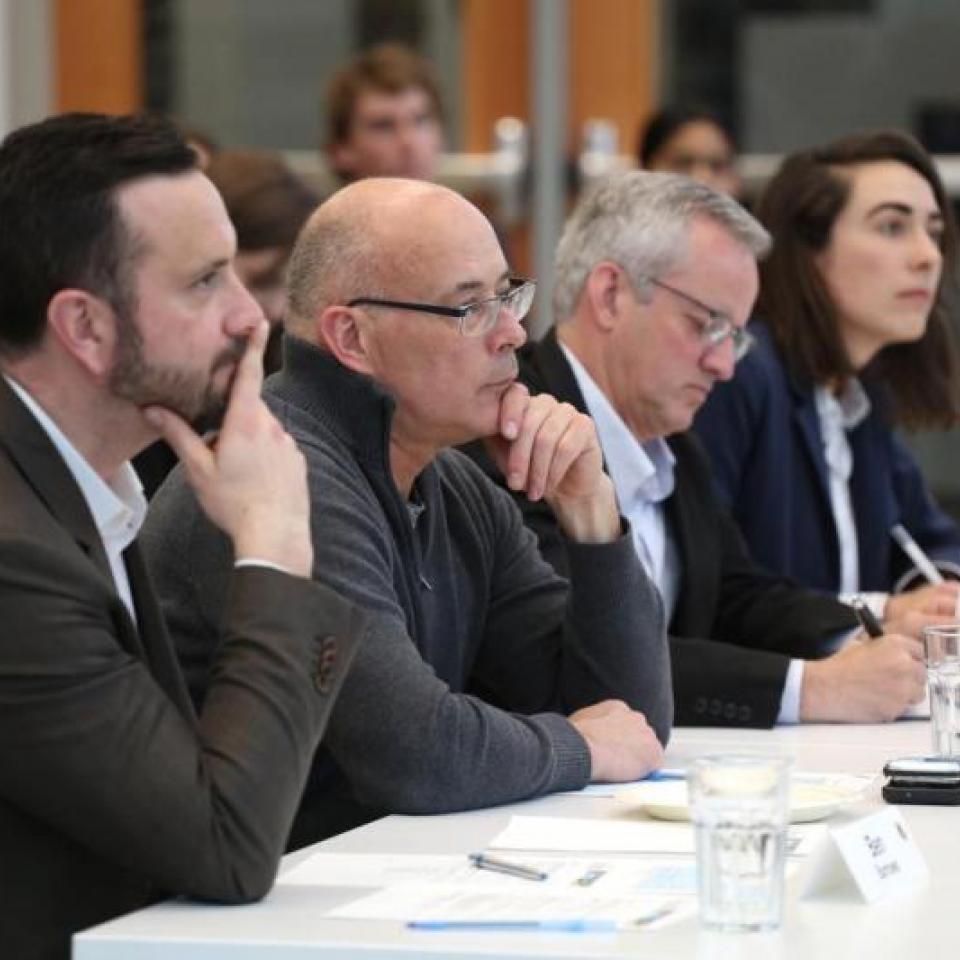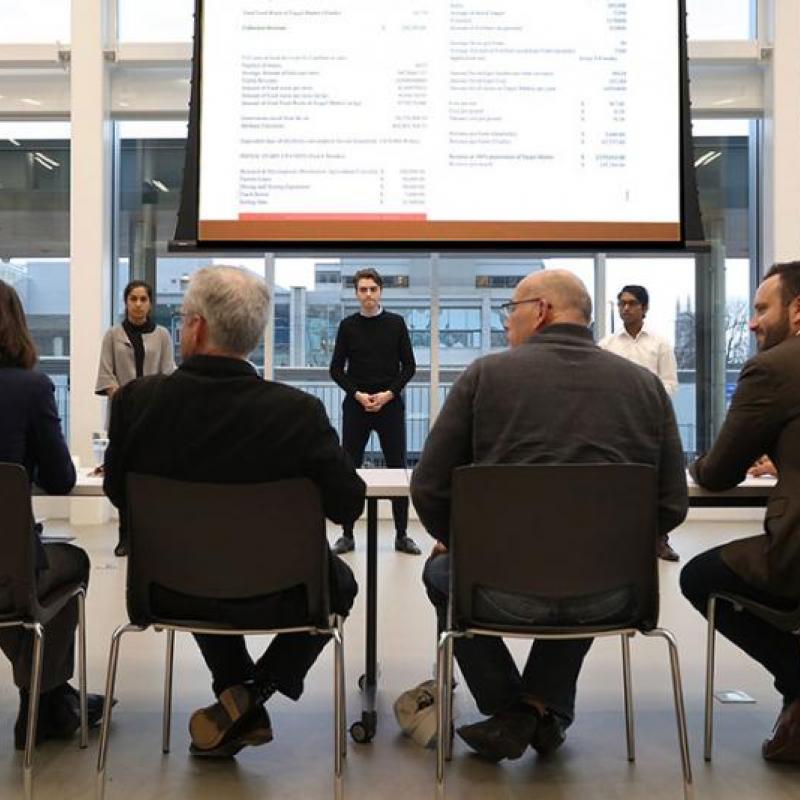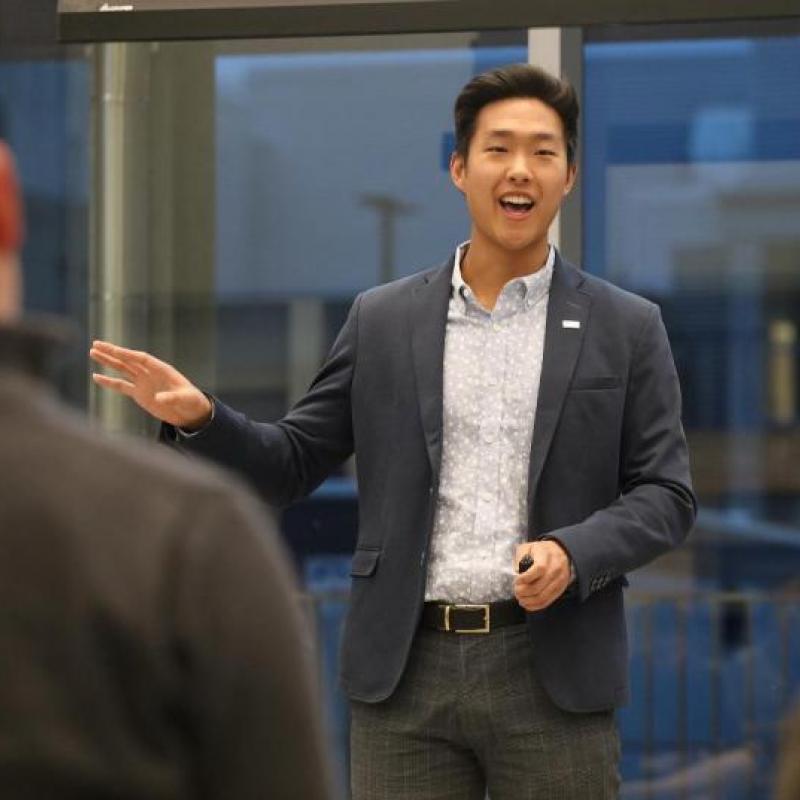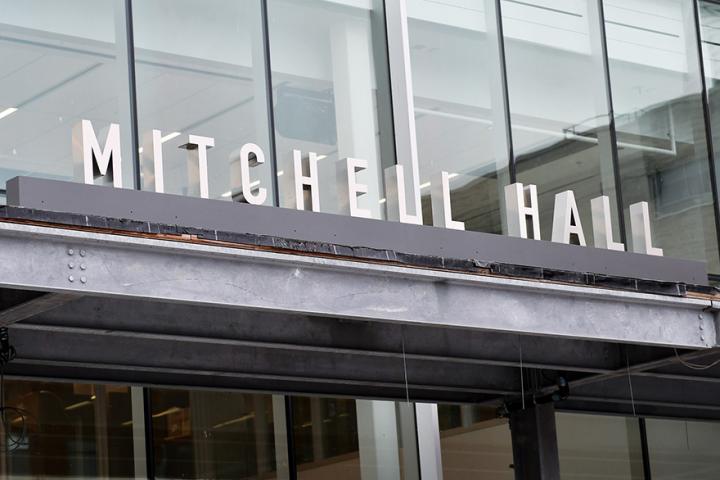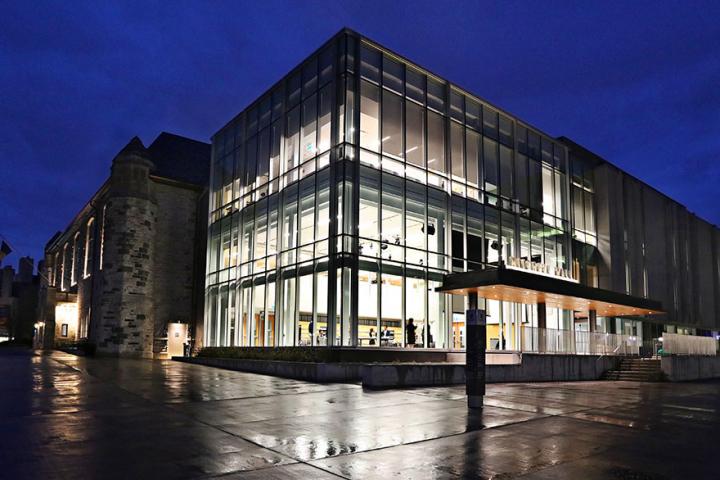The pitch
The second annual World’s Challenge Challenge took place in the events commons of the Rose Innovation Hub in Mitchell Hall. The challenge was hosted by the Dunin-Deshpande Queen’s Innovation Centre (DDQIC).
The judges: Ben Barrows, founder and CEO, Cabot7; Director of Operations, Abraham Path Initiative; Dirk Rodenberg, entrepreneur and adjunct lecturer, Chemical Engineering and Rehabilitation Studies; Greg Bavington, Executive Director, DDQIC; and Melanie Robb,Program Manager, DDQIC.
Thesmo Waste (below) was the first team up. Tackling goal 12: responsible consumption and production, fourth-year commerce students Ushpreet Mehta and Giovanni Nunno and third-year electrical engineering student Joe Ajoy proposed to turn grocery store food waste into liquid fertilizer to sell to fruit and vegetable farms.
Big Spoon Lil Spoon addressed goal 8: decent work and economic growth. Currently an AMS club that holds cooking classes and life-skills workshops for kids with intellectual disabilities, its members aim to create a training and certification program to help adults enter the workforce.
I AM (mending the gap) proposed a certification program for businesses and organizations committed to reducing gender inequality in athletics, combined with funding for athletic programs for girls. The team addressed goal 3: good health and well-being, goal 5: gender equality, and goal 10: reduced inequalities.
The Polymer Net Solution had a two-pronged approach to addressinggoal 14: life below water, a net placed in select riverbeds to filter out micro plastics combined with a positive financial incentive for shoppers who use their own grocery bags instead of plastic bags.
The Queen’s Biomedical Innovation Team introduced Roll With It, a universal,multi-purpose assistive device for children with cerebral palsy. The team adopted an IKEA-like business model, envisioning that customers could order parts online and assemble the devices at home. Roll With It addresses goal 10: reduced inequalities.
Pastel Education targeted goal 4: quality education and goal 10: reduced inequalities.The team’s mission is to assist the teachers of children with neurodevelopmental disabilities in developing countries. It has developed animated online content and augmented reality and machine-learning technologies in its pilot program.
And the winner was...
Pastel Education
The team, comprising Eric Zhang (above) and Carter McInnis, both in first-year medicine, with biology student Megan Janecka, showed that they had a viable business model with the ability to roll it out on an international level. Building on their existing tools in use in school boards across North America, the team is partnering with 1 Million Teachers, an organization that uses a “train the trainer” model for its education platform in Africa. The team aims to leverage the widespread availability of smartphones and mobile internet to provide quality teacher education anywhere.
Pastel Education moves on to the international WCC finals at Western in June. Its members also win a trip to the Boston/MIT start- up ecosystem this fall, courtesy of the DDQIC.
